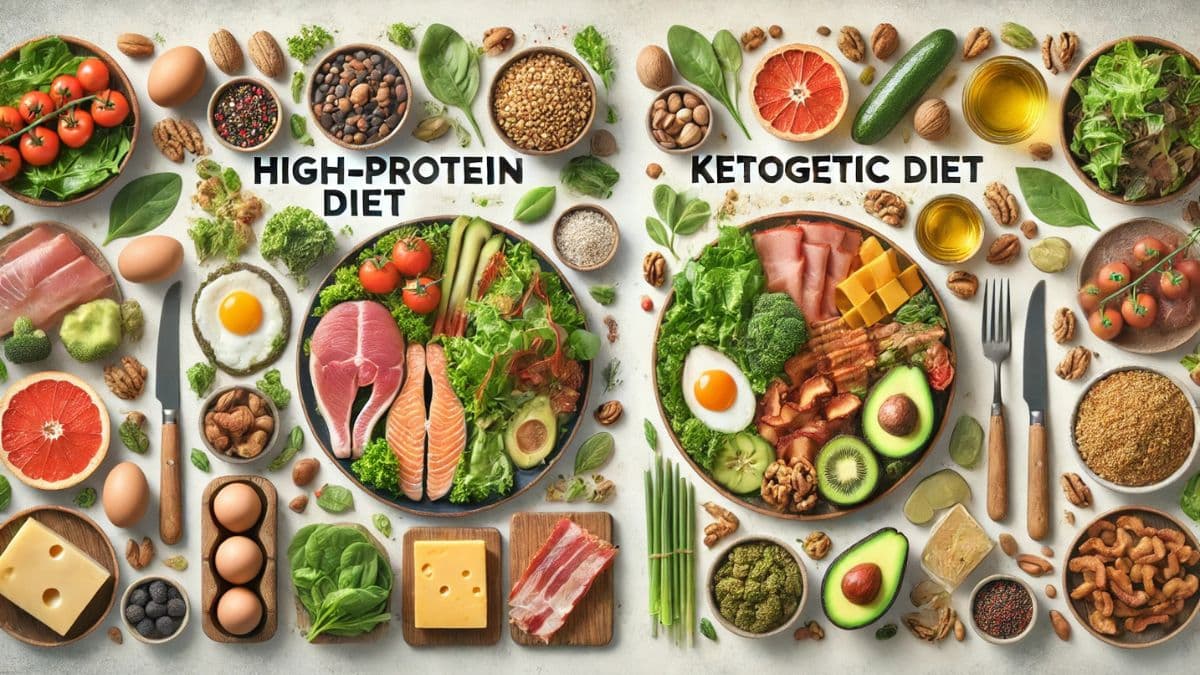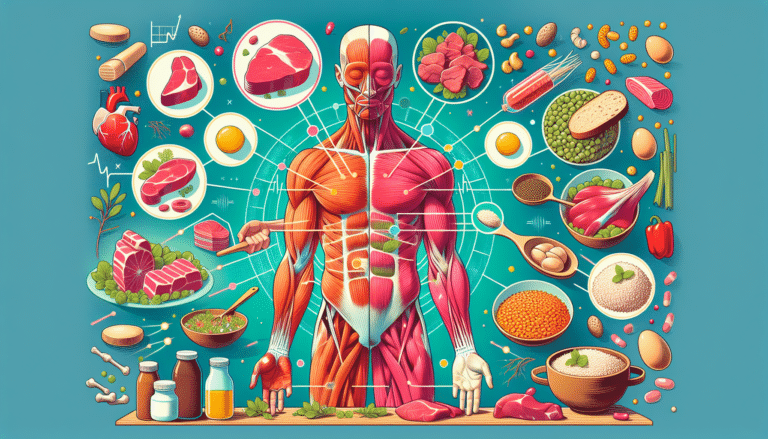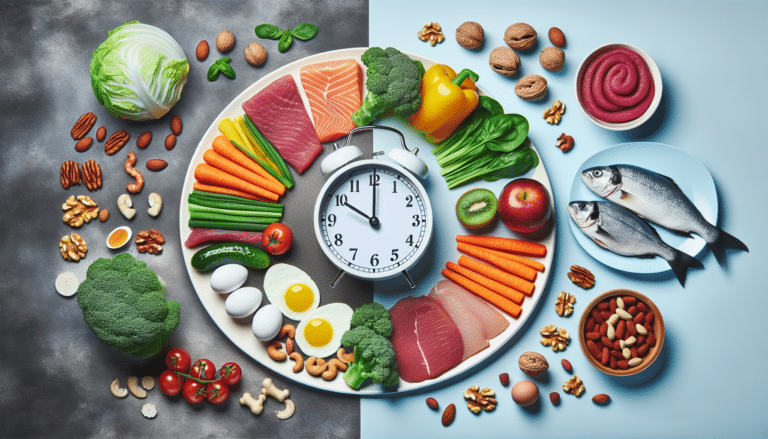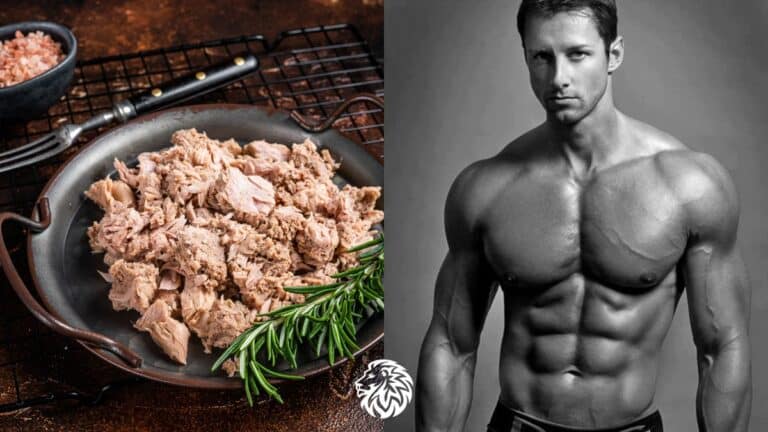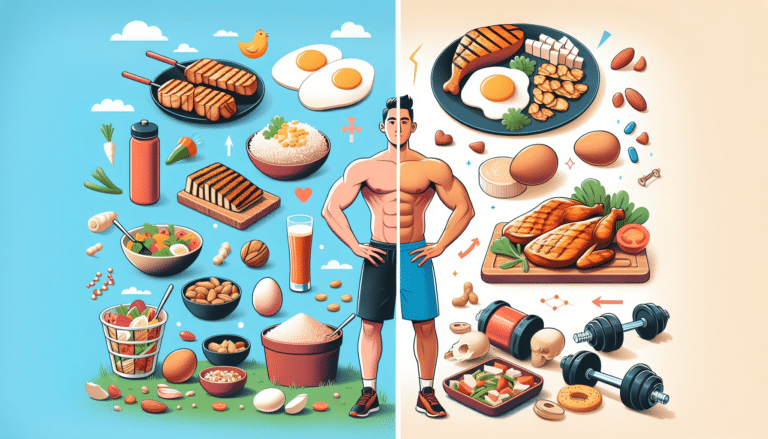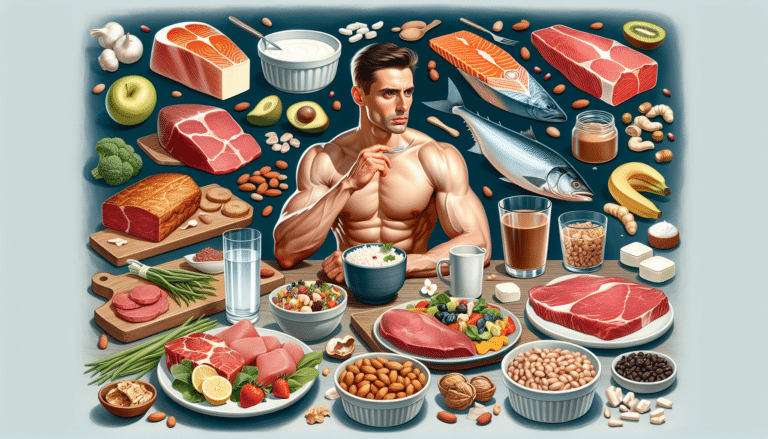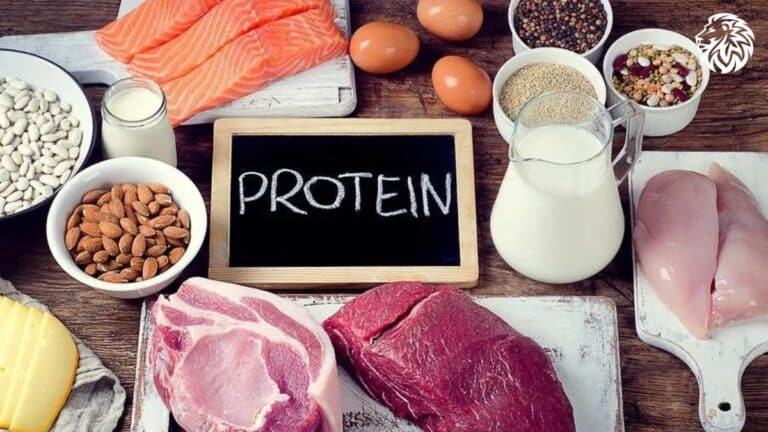High-Protein Diet Basics
Grasping the nuts and bolts of a high-protein diet helps you make smart choices about what ends up on your plate. We’re diving into what exactly makes up a high-protein diet and the scoop on how much you should be aiming for to keep yourself in tip-top shape.
Understanding High-Protein Diets
So, what’s all the buzz about? A high-protein diet puts the spotlight on foods loaded with protein, while giving carbohydrates and fats a back seat. Folks are jumping on this bandwagon for the potential perks like shedding some pounds and keeping muscles from waving goodbye. Protein’s not just hanging out for kicks though; it’s a superstar in fixing muscles, making hormones, and keeping your immune system from taking a nap. Plus, there’s talk that it helps you feel full, making it a little easier to not stray from your food goals.
| Component | What Makes a High-Protein Diet Tick |
|---|---|
| Protein | Pile it on, especially from lean meats, fish, eggs, dairy, beans, and legumes |
| Carbohydrates | Keep them low to moderate, sticking to options with a low-glycemic index |
| Fats | Moderate intake, with healthy picks like avocados, nuts, and seeds |
Recommended Protein Intake
Figuring out how much protein you need isn’t exactly paint-by-numbers. The usual advice is about 0.8 grams per kilogram or 0.36 grams per pound of your body weight. But if you’re in the high-protein camp, handling more could be on the menu, especially if you’re active, trying to trim down, or looking to bulk up a bit.
Here’s a cheat sheet:
| Body Weight | Protein Needs (RDA) | High-Protein Intake Range |
|---|---|---|
| 150 lbs (68 kg) | 54g (RDA) | 75g – 150g |
| 180 lbs (82 kg) | 66g (RDA) | 90g – 180g |
| 200 lbs (91 kg) | 72g (RDA) | 100g – 200g |
For a plan that really fits, you might want to have a chat with a healthcare pro or a nutrition whiz to nail down exactly what your body on a high-protein kick needs. It’s especially worth it if you’re diving into this for particular health perks.
For more on whipping up meals or finding the best protein-packed bites, check out our page about meal plans for weight loss and the best high-protein foods. You’ll get the inside scoop on tuning your eating habits with protein-rich choices.
And hey, remember that while high-protein eating has a lot going for it, it’s smart to stay informed about what it might mean in the long haul health-wise. Getting some pro advice can keep your diet balanced and in the safe zone.
Benefits of High-Protein Diet
Jumping onto a high-protein diet can pack a punch, especially if you’re looking to drop weight or keep your muscles pumping. Let’s break down why loading up on protein might just become your best buddy in the kitchen.
Weight Loss and Feeling Full
Protein’s like that satisfying bowl of chili on a cold day. It keeps you feeling full without the guilt trip. When you’re less hungry, you munch less, meaning goodbye, extra calories! That can give a big help in trimming the waistline.
| Study | Main Takeaways |
|---|---|
| Mayo Clinic | Generally safe for short-term use in healthy folks and hits those hunger pangs hard for weight loss. |
| PubMed | Fat guys on high-protein, low-carb magic ate less, complained less about hunger, and dropped more pounds compared to those on medium-carb diets over a month. |
| Healthline | Eating more protein and cutting 500 to 750 calories a day helps keep your muscles intact while you lose fat on those low-carb regimens. |
Want some tasty bites to fuel your journey? Check out our high-protein meal ideas. Ladies looking to spice up their diet can hop over to high-protein diet for women.
Keeping Your Muscles Buff
Protein’s the muscle’s BFF, especially when you’re cutting down on calories. And for those keeping active, a high-protein intake helps you hang onto that muscle while you’re shedding those unwanted pounds.
| Nutrient | Suggested Intake |
|---|---|
| Protein (For the Active) | 0.8 to 1 g/lb of your body weight (1.8 to 2.2 g/kg) |
| Protein (For Everyone) | 0.36 g/lb of your body weight (0.8 g/kg) |
Bumping up your protein helps keep those hard-earned muscles intact. Curious about boosting your muscle growth? Go ahead and browse our detailed high-protein diet plan for muscle gain.
For a sunny outlook and more insights into how it can rock your world, roll over to our high-protein diet benefits.
To wrap it up, a high-protein diet can be your wingman for dropping weight and saving muscles. Plan wisely with good protein choices, and keep things balanced to minimize any hiccups. Ready to take the plunge into high-protein heaven? Peek at our tips on how to start a high-protein diet.
Potential Risks of High-Protein Diet
Snagging a plate of high-protein goodness? Well, there’s a bit more to chew on beyond the benefits. Your ticker and well-being might face a few curveballs if you’re in it for the long haul. Let’s roll up our sleeves and see what could be lurking in the shadows of those protein-packed plans.
Long-Term Health Effects
Sure, piling up proteins can work wonders when you’re gunning for lean muscles or a slimmer waistline. But, tagging along with high-protein eats for ages might shuffle your health deck for real. As per what the folks at Mayo Clinic have to say, waving the carb flag too low with these diets might stir a pot of troubles:
- Nutrient Deficiencies: Knock carbs off your list, and you might push away the vibrant fruits, leafy greens, and wholesome grains that jazz up your nutrient charts.
- Digestive Issues: All those proteins on your plate? They don’t exactly boost your fiber count. Imagine the unwanted guest list including constipation and more.
- Kidney Health: If kidneys were whispering, they’d squeak out warnings—additional protein could mean extra toil; be mindful if they’ve already got their hands full. For more scoop, swing by our article on high-protein diet and kidney health.
| What Could Go Wrong | Why It Matters |
|---|---|
| Nutrient Deficiencies | Skipping out on vital vitamins and minerals |
| Belly Grumbles | Keep that fiber missing, your gut might grumble! |
| Kidney Grind | More work for kidneys, especially if they’re not in tip-top shape |
Heart Failure Risk
Here’s the kicker: Loading up on protein, in the long run, might not play nice with your heart. A Healthline snippet tells us about a 2018 bash with lessons from 2,441 fellas aged 42 to 60. The word from the wise? More protein could mean a bump—yep, a 33% nudge up in heart failure odds for those munching the most compared to the least.
| Peaks and Stats | What They Show |
|---|---|
| Study Year | 2018 |
| The Crowd | 2,441 men, aged 42-60 years |
| Protein Overload Perils | Pushing a 33% higher shot at heart hiccups |
Not everyone will hit the heart failure jackpot with a high-protein spree, but when the stakes are your heart, it’s worth mulling over. Our piece on high-protein diet and heart health might have more on this conversation.
Decide your protein story with open eyes and think long-term. You might want to yak with a doc for pro tips. Curious about the flip side—the perks? Tap into our high-protein diet benefits for a digest!
The Ketogenic Diet Overview
Thinking about a diet that helps with shedding pounds and building muscle? The ketogenic diet might just be your best buddy. It’s the cool cousin of those high-protein diets, focusing more on fats and giving carbs the cold shoulder.
Ketogenic Diet Basics
The keto diet isn’t just a fancy name; it’s a full-blown high-fat, low-carb eating plan. It nudges your body into “ketosis,” where you burn fat for fuel instead of carbs. Usually, folks on this diet keep carbs way under 50 grams a day, and some daring souls go as low as 20 grams. Load up on fatty meats, oils, nuts, seeds, avocados, and fish full of healthy fat, but steer clear of grains, fruits, beans, and starchy veggies.
Getting to ketosis means your body stops using sugar as energy and shifts to fat power. When your body breaks down fat instead of sugar, it makes ketones, a backup energy source.
| Nutrient | Percent of Total Calories |
|---|---|
| Fat | 70-80% |
| Protein | 15-20% |
| Carbs | 5-10% |
Protein’s Place in the Keto Scene
Let’s chat about protein on the keto diet. While some diets shout “more protein,” keto’s all about keeping it just right. Normally, about 15-20% of your calories come from protein. This is a bit different than high-protein diets, where meat and other protein-packed foods take center stage (Healthline).
For those who love their protein shakes a bit too much, keep in mind that too much protein on keto could send your body back to the sugar-burning game. Why? Because the body can turn extra protein into sugar, messing up that sweet state of ketosis.
Is high-protein your thing? Check out the best high-protein foods to meet your health goals. Worry about too much protein? Read about high-protein diets and kidney health so you know what’s up.
By grasping the keto basics and how protein plays into both high-protein and keto vibes, you’ll nail down which diet suits your goals like a glove. Keep digging into high-protein diet benefits to see how this stacks up against keto.
Health Effects of Ketogenic Diet
Figuring out if a ketogenic diet is your jam takes a little detective work. This part here breaks it down. We’ll chew over things like what ketosis really does for your waistline and how it messes with your metabolism.
Ketosis and Weight Loss
So, cutting carbs and upping fats kickstarts this super fuel-burning party called ketosis. Your body decides carbs are old news and instead picks fats to keep you going. It’s like your liver goes, “Hey, let’s whip up some ketones from our fat stash.”
What’s cool about keto is how it turbocharges weight loss. Studies say that folks on a high-protein, low-carb diet tend to eat less and shed more pounds than those munching on high-protein but medium-carb meals. An experiment with chubby fellas revealed that keto had them losing extra weight compared to their non-keto buddies, even over just four weeks (PubMed).
| Diet Type | Average Weight Loss (lbs) per 4 Weeks |
|---|---|
| High-Protein, Low-Carb Keto | 10 |
| High-Protein, Medium-Carb Non-Keto | 7 |
Jumping into ketosis might hit you with the “keto flu.” Symptoms like headaches, feeling dizzy, tired, sick, and a bit bunged up can pop up (Healthline). But don’t worry, most times they clear as your body learns to love that fat energy.
Impact on Metabolism
Keto shakes up how your metabolism ticks. Switching to burning fat can rev up your metabolic engine, possibly stabilizing blood sugar and making you friendlier with insulin—great news if you’re dealing with type 2 diabetes (NCBI PMC).
Evidence shows keto can lower HbA1c levels, those pesky diabetes markers. By switching up how your body churns out energy, it could boost your calorie burn, keeping weight and metabolism in check (NCBI PMC).
However, with less fiber on your plate, your belly might grumble (and not in a good way). Fiber’s what keeps your gut buddies happy, which is crucial for things like your immune system, mood, and battling inflammation (Healthline). Sneaking in low-carb, high-fiber veggies can keep your digestion on track.
For those who are a bit nitpicky about their food game, putting keto side-by-side with a high-protein diet for weight loss might shine some light on which path suits you better. Don’t forget to check out best high-protein foods and some yummy meal ideas to help you pick your perfect match.
Considerations on High-Protein and Ketogenic Diets
So, you’re thinking about jumping into a high-protein or keto diet, huh? Well, it’s like planning a road trip—you gotta know the pitfalls. Everyone loves talking about the benefits, but let’s chat about what could actually trip you up. Nutrient gaps and how your kidneys might feel about your new eating style should be at the top of the list.
Nutrient Deficiencies
Want those six-pack abs while eating bacon? Sure! But both these diets can leave some holes in your nutrition game. The keto plan might not play nice with essential nutrient levels like calcium, D vitamins, magnesium, and phosphorus (Healthline). Toss a multivitamin into the mix, or you might end up on the not-so-healthy bus.
Let’s gaze at the usual suspects when it comes to deficiencies with these diets:
| Nutrient | High-Protein | Keto |
|---|---|---|
| Calcium | Maybe, if you ghost dairy | Yeah, ’cause it’s low on dairy |
| Vitamin D | Possibly needs a buddy supplement | Pretty much needs backup |
| Magnesium | Might lack imagination in food choices | Needs supplements or else |
| Phosphorus | Not often an issue | ‘Common,’ thanks to less grain love |
Cheating these pitfalls can be simple—a colorful lineup of veggie sides and some well-chosen meaty bites. For more ideas, visit our snackable piece on best high-protein foods.
Kidney Health Implications
Now, let’s talk kidneys. Keto and kidneys have kind of a love-hate relationship. Gobbling up lots of animal protein can make your pee acidic as a horror movie, trying to invite kidney stones to the party. And for folks wrestling with chronic kidney disease (CKD), the keto path might just spell trouble (Healthline).
With the high-protein approach, it’s kind of like you’re asking your kidneys to work overtime. If you’re lifting protein bars like weights and shooting over the RDA of 0.8 grams per kilo of body weight, maybe have a convo with your doctor about it (Healthline).
Here’s the kidney scoop in table fun form:
| Diet Type | Does it like kidney stones? | Stunk up kidneys & CKD |
|---|---|---|
| High-Protein | Medium risk if you’re protein crazy | CKD raises red flags |
| Keto | High risk—thanks, acidic pee! | Steers CKD downhill |
Anybody casting a vote for these diets should totally read up and have a good old chinwag with a healthcare pro. More kidney talk can be found in our snoopy article about high-protein diet and kidney health.
Staying savvy about your eats? Heck yeah! It means you get to decide if going high-protein or keto is the move for you. Catch more clicks from our how-to page on high-protein diet, jam-packed with tips and meal inspo. Happy munching!
